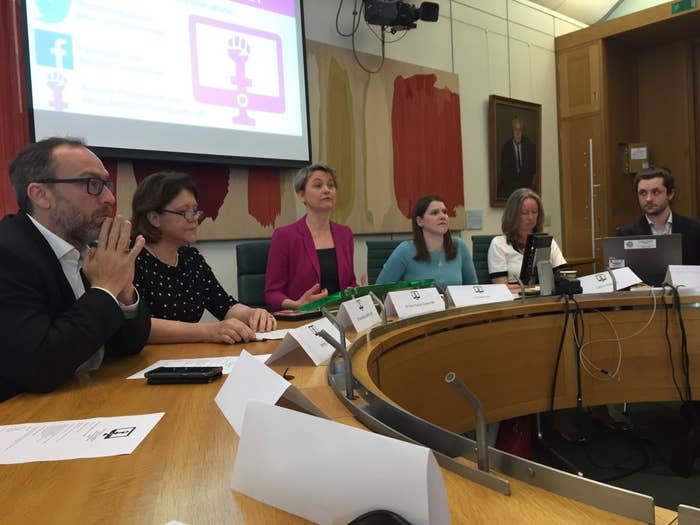
More than half of all misogynistic abuse posted on Twitter come from women, according to a study published on Thursday.
The Centre for the Analysis of Social Media at the Demos think tank carried out a three-week project looking into online abuse, using two terms – "slut" and "whore" – as indicators of misogyny.
Researchers found that 6,500 different individuals were targeted by 10,000 abusive tweets in the UK, while overall internationally 200,000 tweets were sent to 80,000 people in the same period.
Alex Krasodomski-Jones, a researcher who worked on the project, admitted that the study did not paint an exhaustive picture, because it only analysed the use of two terms, but said it was rather "a bird's-eye snapshot of what is ultimately a very personal and often traumatic experience for women".
The Demos research found that 55% of tweets containing "slut" or "whore" were sent by women.
55% of those sending abuse on social media are women: @akrasodomski at #ReclaimTheInternet
Demos published the study at a press conference organised by a cross-party group of leading MPs – Yvette Cooper, Maria Miller, Stella Creasy, Jo Swinson, and Jess Phillips – who today launched Reclaim the Internet, a campaign to tackle online abuse.
Cooper said the group took inspiration from the Reclaim the Night marches that took place in the 1970s. Police told women to stay home when it was dark in the wake of the Yorkshire Ripper murders, and many women responded in protest.
The internet is "an amazing space for freedom of speech, for online debate, for passionate arguments and angry argument as well, but every voice must have their space within that," Cooper said.
"Too often we have heard stories about people’s voices being drowned out by online abuse or being targeted by racist abuse, or by misogyny, or by intimidation and harassment online, so that they actually don’t feel that the internet is for everyone."
Twitter's head of trust and safety, Kira O'Connor, said the social network wants to empower positive voices and said it was working with civil society groups to tackle abusive behaviour.
"Hateful conduct has no place on the Twitter platform and is a violation of our terms of service," O'Connor said.
"In addition to our policies and user controls, such as block, mute, and our new multiple tweet reporting functionality, we work with civil society leaders and academic experts to understand the challenge that exists."
Former shadow home secretary Cooper's comments were echoed by campaigners and activists who will be taking part in the campaign's consultation in advance of a conference it plans to hold in July.
Creasy, another Labour MP, told BuzzFeed News the internet had become a great place to find entertaining content – like cats and people in Chewbacca masks – but there was a risk of people "walking away", and she called on users who see abuse to step in.
The campaign didn't want to stop freedom of speech, she said. "Reclaiming the internet is about expanding people's horizons rather than restricting it," Creasy said.
Creasy has retweeted a series of abusive comments she received as a result of playing a role in the campaign to highlight the issue.
Thank you *so much* for clearing that up.....#jogontroll #reclaimtheinternet https://t.co/BncCKgcVkQ
Thank you *so much* for clearing that up.....#jogontroll #reclaimtheinternet https://t.co/BncCKgcVkQ
Other campaigners and MPs suggested solutions to tackling abuse. Wikipedia founder Jimmy Wales said community moderation had created a more positive environment on the site, as any abusive comments were quickly taken down by users.
Labour MP Phillips suggested organisations could look to the gaming sector for a solution. "What they do on gaming forums is, if you cheat, or smash things up, if you are sexist or vile, they send you to a different server and they just have to play with each other," she said.
"They can have their freedom of speech, they can say whatever they want, they can say it to each other, and it seems that there are plenty of them. We need responses like that."
